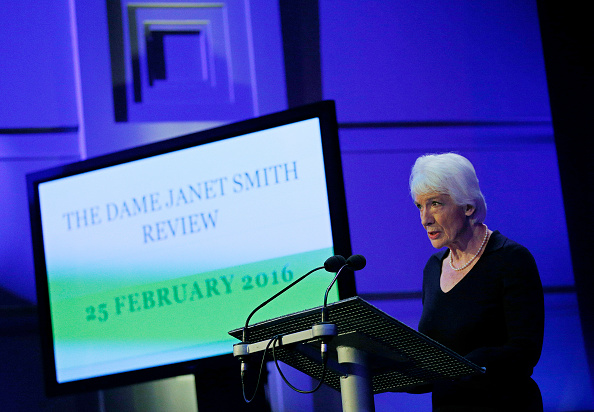The Dame Janet Smith report into Jimmy Savile has already been labelled an ‘expensive whitewash’ by a lawyer representing 168 victims, just hours after it was published. The review found that BBC staff knew of complaints and allegations about the entertainer but that little was done to pursue them because of a culture of fear at the corporation. One of the most shocking parts of the report, aside from the details of Savile’s own predatory actions, is tucked away in the review’s summary. Dame Janet Smith writes that:
‘It is clear that a number of BBC staff had heard rumours, stories or jokes about Savile to the effect that, in some way, his sexual conduct was inappropriate.’
The review goes on to say that some passed off these rumours as ‘amusing’ but did little about them. The report also says that reporting the rumours didn’t even occur to those who heard them:
‘No one to whom we spoke thought that he or she ought to report such a rumour to a person in authority.’
Whilst it was clear that rumours about Jimmy Savile were not unusual at the BBC, it seems that the problem – as far as the Dame Janet Smith review appears to suggest – was in such rumours being reported to the upper echelons of the corporation’s management. The review says that some staff ‘assumed that BBC management must be aware of Savile’s reputation and did not think it was for them to do anything about it’.
But, what’s more, the report goes on to say that those higher up at the BBC were unlikely to have heard about rumours to the extent that those lower down in the corporation would have done, purely because of who they socialised with. The report says:
‘More senior people would not necessarily know about rumours; as one would expect, more senior people do not seem to have had the same exposure to gossip and rumour as those in less senior positions. The BBC is a hierarchical organisation and, as a general rule, I think people tended to socialise with colleagues on their own level in the hierarchy.’
Leaning on a ‘general rule’ in a report numbering hundreds of pages seems like a leap. And is it really credible to suggest that rumours about Savile would have been contained because of the hierarchical structure of the BBC?
Liz Dux, from Slater and Gordon, says:
‘All the Savile and Hall victims have ever wanted from this report is truth and accountability. Despite millions having been spent on the inquiry, my clients will feel let down that the truth has still not been unearthed and many will feel it is nothing more than an expensive whitewash’.
On the basis of reading through parts of the report, it’s difficult to disagree with her assessment.







Comments